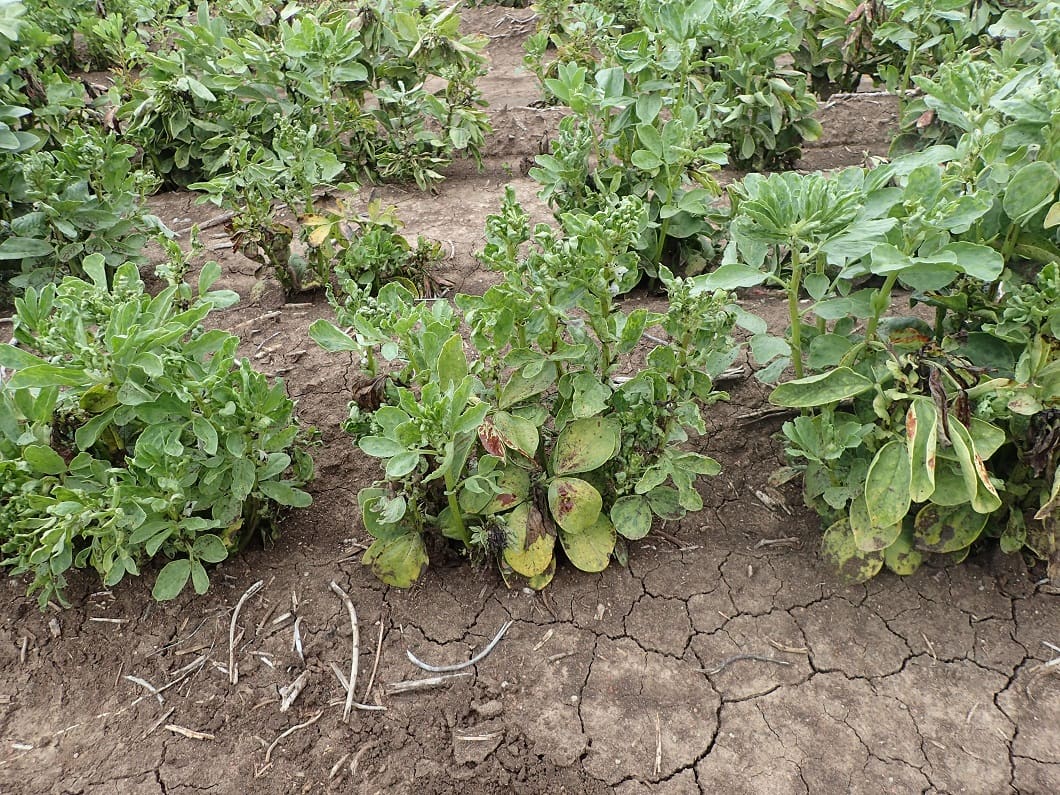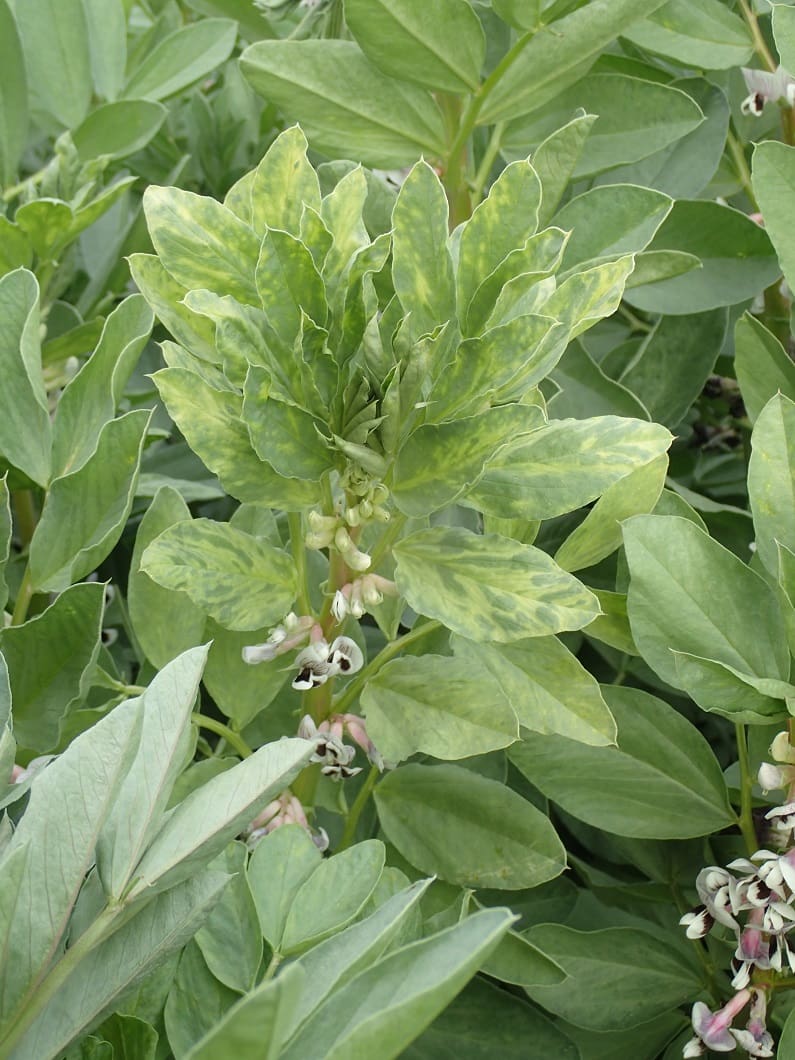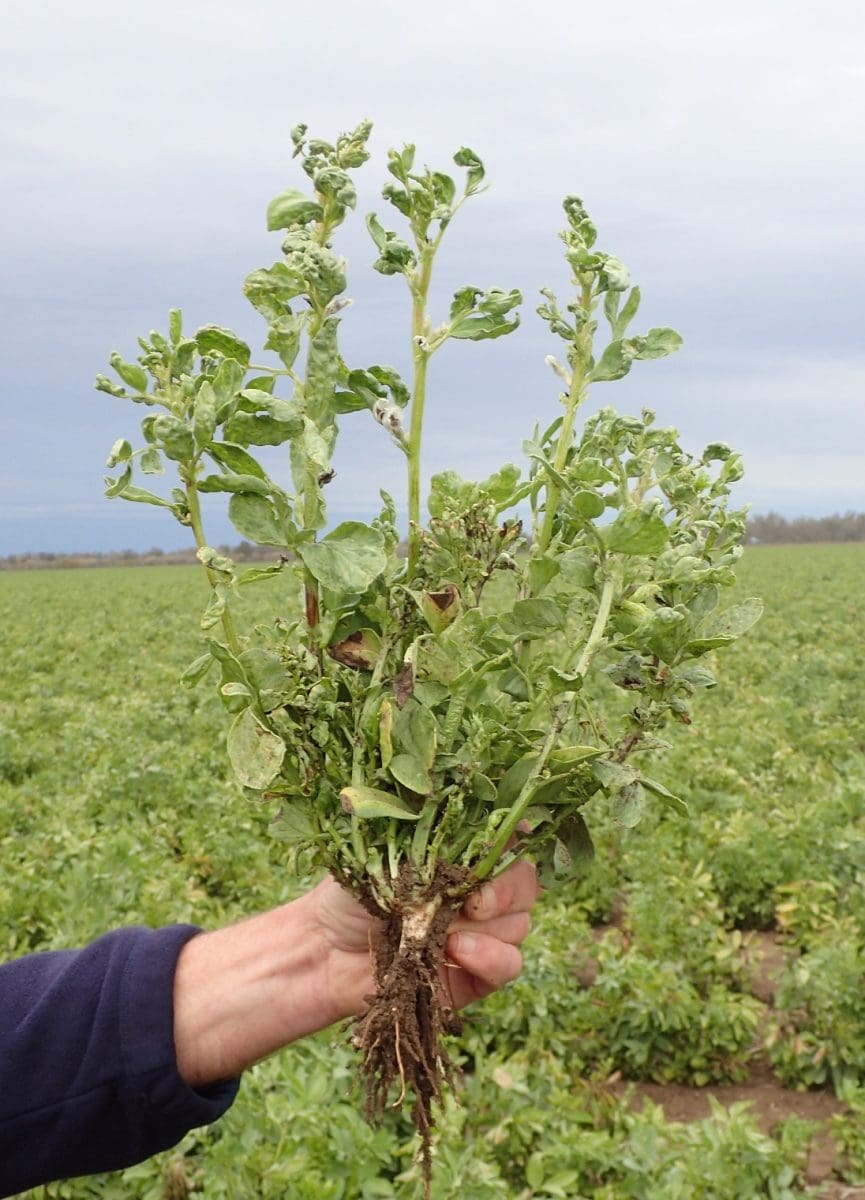
Bean yellow mosaic virus is causing significant damage to faba bean crops in northern growing areas.
FABA bean crops throughout the northern growing region, particularly in north west New South Wales, are bearing the brunt of a bean yellow mosaic virus outbreak that has produced unusually high levels of damage, and in some instances totally wiped out plants.
High numbers of aphids, which are vectors for the virus, are thought responsible for the prolific spread of the disease.
The virus has also appeared earlier in the season than usual which may be why it has had such a dramatic impact on plants in their early growth stages.
NSW Department of Primary Industries senior plant pathologist, Joop van Leur, Tamworth, said while authorities were still running tests to confirm the virus’s identity and virulence, it was looking most likely to be bean yellow mosaic virus.
“It is not a new virus. As far as we can test at the moment it is the yellow mosaic virus. We are doing further tests to see whether we have strains at the moment that are more virulent,” he said.
“This virus normally comes relatively late in the season. But when a disease affects a plant early in its growth it has a far larger impact.”
Aphid vectors
 Dr van Leur said the epidemiology of the virus was far more complex than normal diseases because the vector – aphids – played a key role in its spread.
Dr van Leur said the epidemiology of the virus was far more complex than normal diseases because the vector – aphids – played a key role in its spread.
“The vector has to over-summer somewhere. Viruses also have to survive between seasons. Most viruses need a ‘green bridge’ as they can only survive in green tissue,” he said.
“The aphids have to acquire the virus then transmit it to the crop. Without aphids there is no virus.
“There were many aphids in March and April. There were far more than normal in the pasture legumes. Our hyphothesis is that there have been two really dry years out west (north west NSW) with no crops. Then in January-February there were heavy rains, in some areas close to floods. The reason there were a lot of aphids was because there were a lot of the naturalised medics.”
High virulence
Dr van Leur said while there weren’t as many faba bean crops planted as growers would have liked because of seed shortages, there were still a lot of crops sown very early that were exposed to the aphids that had the virus.
“What is unique this year is that this virus, which normally only causes mild symptoms, is actually killing plants. It could be just because of the very early infection, it could be very high virus loads. We think the virus originated from the medics. Medics are a symptomless carrier. From there it has got into the faba beans,” he said.
Combination of factors
Dr van Leur said there were other factors that played a role in the spread and severity of the outbreak.
“There was initially mild weather which favoured the aphid multiplication,” he said.
 “A lot of paddocks were sown with relatively old seed and had uneven emergence which favours aphid landings.
“A lot of paddocks were sown with relatively old seed and had uneven emergence which favours aphid landings.
“After two dry years there was no stubble cover. If crops are grown in standing wheat stubble that deters the aphids from landing.
“We don’t have all the answers at the moment.”
Dr van Leur said that, similar to human viruses, there was really nothing growers could do once the virus was in their crops.
“All virus control strategies are aimed at avoiding infection. In principle you can do insecticide applications, but you have to do it at the right time. You have to know when the aphids come into the crop and apply the insecticide before they do,” he said.
“The question is how often can it happen again? I would stress that it is a rare occasion. Some old timers say they have never seen as many aphids as they’ve seen in March-April.”
Dr van Leur said scientists were conducting a screening program and trying to develop varieties that had resistance to all the different viruses.
“There are quite a few crops that have escaped the worst of it. They might be infected but look like they are yielding well. They are usually crops that grew well from the early start and could tolerate the virus.”
Grain Central: Get our free daily cropping news straight to your inbox – Click here

HAVE YOUR SAY